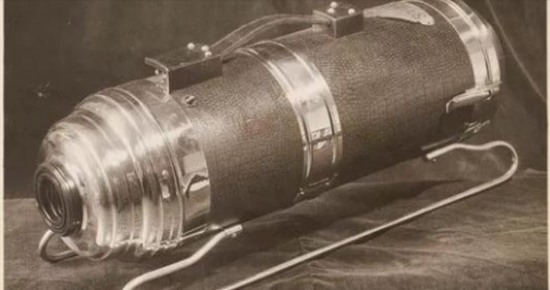Change is a constant in life, evident in the evolution of people, situations, and technology. Reflecting on personal experiences underscores this inevitability. Amidst the flux, technological progress stands out, offering both a daunting and refreshing perspective. Delving into the past, we encounter an enigmatic contraption from the ’30s, the Hercules Vacuum cleaner—a relic unfamiliar to those not present during that era.
This peculiar flask-like device, now overshadowed by modern Roombas, symbolizes a bygone era’s innovation. The Hercules, adorned with crocodile skin, epitomized luxury during the Great Depression—an extravagant purchase when many struggled to meet basic needs. Today, the effortless operation of our vacuum cleaners contrasts sharply with the sophistication and excitement that once surrounded such machines.

Notably, the humble broom underwent refinement, with the first real vacuum cleaner emerging in the 1860s. Daniel Hess’s invention aimed to draw dust through the machine using a draft of air. However, it was James Murray Spangler, a diligent janitor from Canton, Ohio, who revolutionized vacuum cleaner design. His portable, upright machine, patented in 1907, surpassed predecessors by utilizing a ceiling fan motor and paddle blades for efficient airflow.
Spangler’s creation, though initially challenging his health, marked a significant leap forward. The Electric Suction Sweeper Company, founded after quitting his job, embodied his dedication. The Hoover, born out of financial struggles, emerged when Spangler sold his company to his cousin, Susan Hoover. This transition encapsulated the dynamic nature of progress, where innovation, determination, and unforeseen circumstances shape the trajectory of technology.

In contemplating such transformations, one is prompted to appreciate the ease of contemporary life, often taken for granted. The story of the Hercules Vacuum cleaner becomes a tangible link to a past marked by ingenuity, resilience, and the relentless pursuit of improvement—a narrative echoing the broader theme of inevitable change.

